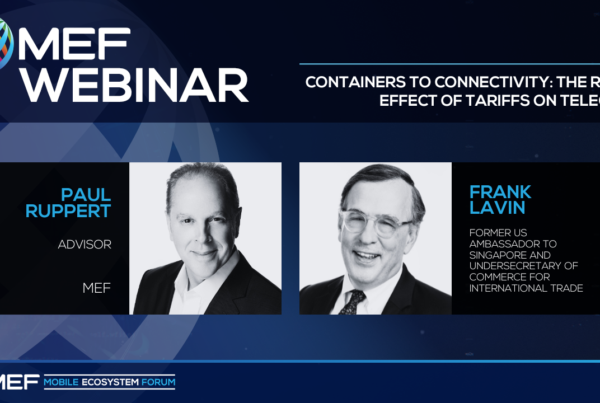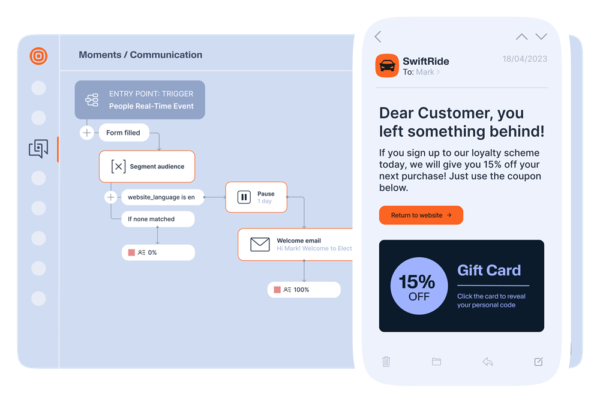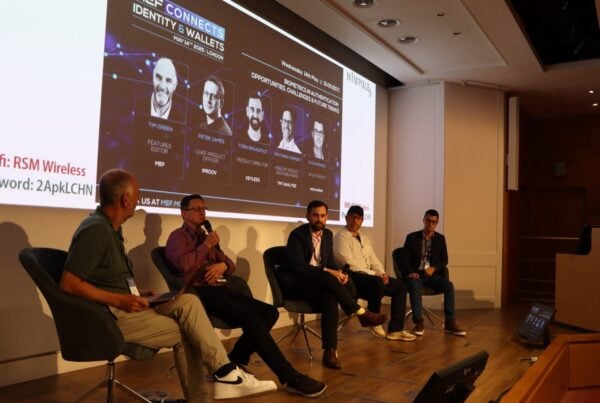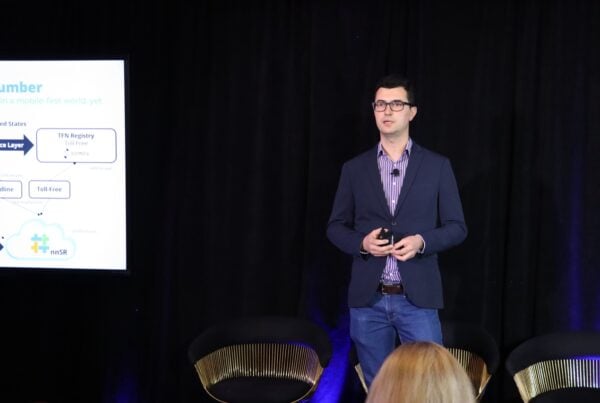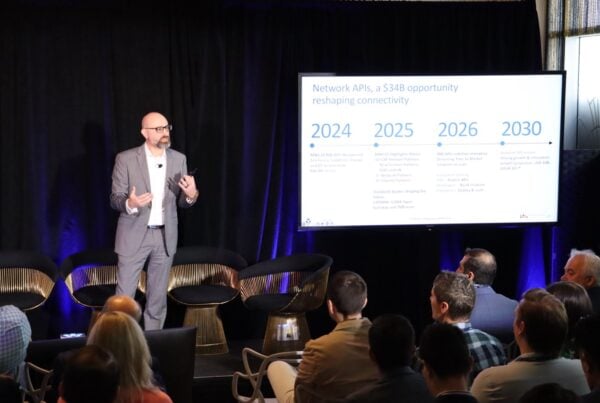MEF BUSINESS NEWS 1 JUL 2025 Global stocks kicked off the second half riding a record-breaking rally, fueled by rising confidence that the U.S. economy can weather Trump’s tariff threats. Markets surged as hopes grew for trade deals and potential Fed rate cuts, pushing the MSCI All Country World Index to new highs and Treasuries to their best first-half in five years. Investors are bullish—for now—but the shadow of Trump’s unpredictable fiscal agenda looms large. The dollar’s weakness hints at lingering doubts about long-term U.S. policy stability. —————————————— The greenback just posted its worst start to a year in more than half a century —slumping over 10% from January. It hasn’t been this bad since 1973. A mix of Trump’s aggressive tariffs, surging debt, and inflation jitters are shaking faith in America’s financial dominance. With foreign investment pulling back and borrowing costs climbing, the ripple effects could rattle everything from travel to Treasury markets. Despite rebounding stocks and softened tariff threats, the dollar keeps sliding—signaling that deeper doubts remain about U.S. leadership in the global economy. For now, America’s once-unshakeable currency looks increasingly vulnerable. ——————————— The U.S. is scrambling to secure quick trade deals before Trump’s July 9 tariff deadline—scaling back from sweeping promises to narrower pacts to avoid reigniting a trade war. The retreat comes as the 90-day pause on Trump’s “reciprocal tariffs” nears its end, forcing officials to strike partial agreements or risk reimposing steep levies. With only the UK deal finalized and China in a fragile truce, uncertainty looms over global trade flows. Sector-specific tariffs still hang in the balance, and foreign negotiators face a volatile White House using tariffs as leverage. A flurry of last-minute deals—or disruption—could shape the economic summer. ———————————- According to Bloomberg, the EU is prepared to accept Trump’s 10% universal tariff—but only with key carve-outs—as it races to strike a deal before the deadline that could trigger 50% tariffs on most EU exports. In a sharp pivot, Brussels is seeking exemptions on vital sectors like autos, steel, pharma, and aircraft, while offering strategic cooperation to ease tensions — the American wire service reports. With €380 billion in trade at stake, both sides eye an interim pact to buy more time—but if talks collapse, the EU is ready to hit back with retaliatory tariffs on politically sensitive U.S. goods. The high-stakes deadline could redraw transatlantic trade. ———————————- Gulf oil giants rein in $60bn global deal spree as falling crude prices force a shift from growth to dividends. Aramco and Adnoc the world’s most aggressive energy buyers—are hitting pause on mega-acquisitions, citing oil’s slide from $80 to $67 per barrel and pressure from state backers to prioritize payouts. With marquee deals like Castrol off the table and integration of past purchases underway, the M&A chill signals a broader reset across the energy sector, as oversupply fears and fiscal caution reshape strategies from Abu Dhabi to Jeddah. ———————————- The US Senate’s tax cut bill hands the richest 20% an average $6,055 boost, while the bottom 20% lose about $560, mainly due to cuts in Medicaid and food aid. Some senators want even deeper Medicaid cuts, turning the safety net into more of a tightrope. And if tariffs are added to pay for it, lower-income families could get hit even harder. So, the rich get richer, the poor get poorer — and Capitol Hill drama continues. Senators are in the final stages of approving Trump’s tax bill in a bid to get it to the president’s desk by July 4. —————————————— King Charles is set to pocket £132 million next year, thanks to the Crown Estate making over £1.1 billion in profits — more than double what it was two years ago. The offshore wind boom is blowing cash into royal coffers, with the seabed auctions for wind farms proving quite the gold mine. While the King’s official income stays flat, the estate’s London properties and ambitious housing projects keep the cash flowing. Meanwhile, Buckingham Palace renovations continue — asbestos and all — proving even royal homes have their headaches. —— —— MEF MOBILE NEWS 1 JUL 2025 The bidders trying again to buy TikTok’s US operations are the same consortium—Oracle, Blackstone, and Andreessen Horowitz—that stalled amid past US-China trade tensions. The deal aims to spin off TikTok’s American unit, cutting ByteDance’s Chinese stake below 20% to satisfy national security rules. With a fresh 90-day deadline and ongoing high-level talks, TikTok’s future in the US mobile ecosystem hangs in the balance, facing a potential shutdown if no sale is finalized. ———————- Europe is getting a direct-to-mobile satellite network in 2026, as Vodafone and AST SpaceMobile gear up to launch SatCo. The timing of the project has been announced some hours ago. The move answers growing demand from 21 countries for seamless connectivity in remote and underserved areas. By centralizing satellite broadband under one European hub, SatCo could redefine rural access, emergency comms, and digital sovereignty. Headquartered in Luxembourg, the venture positions Europe to compete in the space-based mobile race, backed by telcos, governments, and EU policymakers. ———————————- France’s Orange Business has launched a dedicated defence unit to fast-track digital transformation across Europe’s military and homeland security sectors. The move comes as governments push for sovereign, AI-powered, cyber-resilient systems amid rising geopolitical tensions. Backed by hundreds of experts, the new division will integrate Orange’s secure networks, cyberdefence, and quantum tech to support sensitive data hosting, emergency comms, and hybrid civilian-military infrastructure. It’s a strategic bid to cement Orange as a central player in Europe’s digital defence ecosystem. ————————————— Over 25% of UK businesses faced cyber-attacks in the past year due to growing digital vulnerabilities in increasingly connected building systems, putting the mobile and smart ecosystem at risk. The rise—from 16% last year to 27% now—is driven by sophisticated cybercriminal tactics and outdated tech like unsupported operating systems. With 73% of business leaders expecting disruptions soon, incidents like Marks & Spencer’s seven-week website shutdown show how costly these attacks can be. As smart building tech—from IoT devices to automated HVAC—expands, companies must urgently upgrade defenses or risk widespread operational chaos in their mobile-driven, digitally integrated workplaces. ————————————— A New York judge ruled that Meta and TikTok’s parent company ByteDance can be sued for allegedly fueling a teen’s fatal “subway surfing” stunt. The 15-year-old died after being struck atop a moving train—his mother claims algorithms targeted him with viral, dangerous challenges. The case marks a turning point: platforms may no longer hide behind Section 230 when AI-powered feeds push high-risk content to vulnerable users. As legal scrutiny intensifies, Big Tech’s algorithmic liability could be on a collision course with the mobile ecosystem’s core revenue engines. ———————————————- —— —— MEF TECH NEWS 1 JUL 2025 AI is now better than doctors at diagnosing complex conditions—at least, according to Microsoft. The tech giant says its new system, powered by OpenAI’s o3 model, correctly solved over 80% of advanced medical cases, compared to just 20% by physicians working solo. Designed to mimic a panel of specialists, the AI asks questions, orders virtual tests, and reaches diagnoses step by step. Microsoft says it’s not ready for clinical use yet, but it’s a major leap toward mobile-based health tools that could one day give users specialist-level support—right from their phones. ————————— Amazon’s warehouses are on the brink of becoming more robotic than human. The e-commerce giant now counts over 1 million robots—nearly matching its human workforce—and says about 75% of global deliveries are now assisted by machines — the Wall Street Journal reports. Why? Productivity is surging, and automation is helping curb hiring, especially amid high warehouse turnover. Robots now pick, pack, sort, and even “feel” items with touch-sensitive arms like Vulcan. With AI guiding inventory and fulfillment, Amazon is reshaping logistics and labor alike—one algorithm at a time. The mobile supply chain is evolving, and the bots are officially in charge. ————————— AI-powered digital workers are becoming a regular part of banking, with firms like Bank of New York Mellon and JPMorgan Chase deploying AI “employees” that mimic human workflows and hold their own company logins. This shift aims to boost efficiency in tasks like code fixing and payment validation by giving AI systems autonomy and communication tools like email and Microsoft Teams. As banks fine-tune access and oversight, the future could see every human employee paired with an AI assistant, fundamentally changing how work gets done and how client services operate. The banking sector is now racing to integrate these digital workers seamlessly, shaping a hybrid human-AI workforce. —————————— Meta launches its Superintelligence Labs to build AI systems smarter than humans, aiming to lead the next era of innovation. This new division consolidates Meta’s core AI research, Llama model teams, and AI product development under one roof, with Alexandr Wang as chief AI officer and Nat Friedman heading AI products. Mark Zuckerberg’s aggressive hiring spree, including top talent from OpenAI, Google DeepMind, and Anthropic, reflects his vision of AI-powered personal assistants, business agents, and creative tools, backed by a $70 billion investment plan. The move signals Meta’s push to recover from AI setbacks and compete fiercely in the race for AI superintelligence. —— ——
MEF BUSINESS NEWS 1 JUL 2025 Global stocks kicked off the second half riding a record-breaking rally, fueled by rising confidence that the U.S. economy can weather Trump’s tariff threats. Markets surged as hopes grew for trade deals and potential Fed rate cuts, pushing the MSCI All Country World Index to new highs and Treasuries to their best first-half in five years. Investors are bullish—for now—but the shadow of Trump’s unpredictable fiscal agenda looms large. The dollar’s weakness hints at lingering doubts about long-term U.S. policy stability. —————————————— The greenback just posted its worst start to a year in more than half a century —slumping over 10% from January. It hasn’t been this bad since 1973. A mix of Trump’s aggressive tariffs, surging debt, and inflation jitters are shaking faith in America’s financial dominance. With foreign investment pulling back and borrowing costs climbing, the ripple effects could rattle everything from travel to Treasury markets. Despite rebounding stocks and softened tariff threats, the dollar keeps sliding—signaling that deeper doubts remain about U.S. leadership in the global economy. For now, America’s once-unshakeable currency looks increasingly vulnerable. ——————————— The U.S. is scrambling to secure quick trade deals before Trump’s July 9 tariff deadline—scaling back from sweeping promises to narrower pacts to avoid reigniting a trade war. The retreat comes as the 90-day pause on Trump’s “reciprocal tariffs” nears its end, forcing officials to strike partial agreements or risk reimposing steep levies. With only the UK deal finalized and China in a fragile truce, uncertainty looms over global trade flows. Sector-specific tariffs still hang in the balance, and foreign negotiators face a volatile White House using tariffs as leverage. A flurry of last-minute deals—or disruption—could shape the economic summer. ———————————- According to Bloomberg, the EU is prepared to accept Trump’s 10% universal tariff—but only with key carve-outs—as it races to strike a deal before the deadline that could trigger 50% tariffs on most EU exports. In a sharp pivot, Brussels is seeking exemptions on vital sectors like autos, steel, pharma, and aircraft, while offering strategic cooperation to ease tensions — the American wire service reports. With €380 billion in trade at stake, both sides eye an interim pact to buy more time—but if talks collapse, the EU is ready to hit back with retaliatory tariffs on politically sensitive U.S. goods. The high-stakes deadline could redraw transatlantic trade. ———————————- Gulf oil giants rein in $60bn global deal spree as falling crude prices force a shift from growth to dividends. Aramco and Adnoc the world’s most aggressive energy buyers—are hitting pause on mega-acquisitions, citing oil’s slide from $80 to $67 per barrel and pressure from state backers to prioritize payouts. With marquee deals like Castrol off the table and integration of past purchases underway, the M&A chill signals a broader reset across the energy sector, as oversupply fears and fiscal caution reshape strategies from Abu Dhabi to Jeddah. ———————————- The US Senate’s tax cut bill hands the richest 20% an average $6,055 boost, while the bottom 20% lose about $560, mainly due to cuts in Medicaid and food aid. Some senators want even deeper Medicaid cuts, turning the safety net into more of a tightrope. And if tariffs are added to pay for it, lower-income families could get hit even harder. So, the rich get richer, the poor get poorer — and Capitol Hill drama continues. Senators are in the final stages of approving Trump’s tax bill in a bid to get it to the president’s desk by July 4. —————————————— King Charles is set to pocket £132 million next year, thanks to the Crown Estate making over £1.1 billion in profits — more than double what it was two years ago. The offshore wind boom is blowing cash into royal coffers, with the seabed auctions for wind farms proving quite the gold mine. While the King’s official income stays flat, the estate’s London properties and ambitious housing projects keep the cash flowing. Meanwhile, Buckingham Palace renovations continue — asbestos and all — proving even royal homes have their headaches. —— —— MEF MOBILE NEWS 1 JUL 2025 The bidders trying again to buy TikTok’s US operations are the same consortium—Oracle, Blackstone, and Andreessen Horowitz—that stalled amid past US-China trade tensions. The deal aims to spin off TikTok’s American unit, cutting ByteDance’s Chinese stake below 20% to satisfy national security rules. With a fresh 90-day deadline and ongoing high-level talks, TikTok’s future in the US mobile ecosystem hangs in the balance, facing a potential shutdown if no sale is finalized. ———————- Europe is getting a direct-to-mobile satellite network in 2026, as Vodafone and AST SpaceMobile gear up to launch SatCo. The timing of the project has been announced some hours ago. The move answers growing demand from 21 countries for seamless connectivity in remote and underserved areas. By centralizing satellite broadband under one European hub, SatCo could redefine rural access, emergency comms, and digital sovereignty. Headquartered in Luxembourg, the venture positions Europe to compete in the space-based mobile race, backed by telcos, governments, and EU policymakers. ———————————- France’s Orange Business has launched a dedicated defence unit to fast-track digital transformation across Europe’s military and homeland security sectors. The move comes as governments push for sovereign, AI-powered, cyber-resilient systems amid rising geopolitical tensions. Backed by hundreds of experts, the new division will integrate Orange’s secure networks, cyberdefence, and quantum tech to support sensitive data hosting, emergency comms, and hybrid civilian-military infrastructure. It’s a strategic bid to cement Orange as a central player in Europe’s digital defence ecosystem. ————————————— Over 25% of UK businesses faced cyber-attacks in the past year due to growing digital vulnerabilities in increasingly connected building systems, putting the mobile and smart ecosystem at risk. The rise—from 16% last year to 27% now—is driven by sophisticated cybercriminal tactics and outdated tech like unsupported operating systems. With 73% of business leaders expecting disruptions soon, incidents like Marks & Spencer’s seven-week website shutdown show how costly these attacks can be. As smart building tech—from IoT devices to automated HVAC—expands, companies must urgently upgrade defenses or risk widespread operational chaos in their mobile-driven, digitally integrated workplaces. ————————————— A New York judge ruled that Meta and TikTok’s parent company ByteDance can be sued for allegedly fueling a teen’s fatal “subway surfing” stunt. The 15-year-old died after being struck atop a moving train—his mother claims algorithms targeted him with viral, dangerous challenges. The case marks a turning point: platforms may no longer hide behind Section 230 when AI-powered feeds push high-risk content to vulnerable users. As legal scrutiny intensifies, Big Tech’s algorithmic liability could be on a collision course with the mobile ecosystem’s core revenue engines. ———————————————- —— —— MEF TECH NEWS 1 JUL 2025 AI is now better than doctors at diagnosing complex conditions—at least, according to Microsoft. The tech giant says its new system, powered by OpenAI’s o3 model, correctly solved over 80% of advanced medical cases, compared to just 20% by physicians working solo. Designed to mimic a panel of specialists, the AI asks questions, orders virtual tests, and reaches diagnoses step by step. Microsoft says it’s not ready for clinical use yet, but it’s a major leap toward mobile-based health tools that could one day give users specialist-level support—right from their phones. ————————— Amazon’s warehouses are on the brink of becoming more robotic than human. The e-commerce giant now counts over 1 million robots—nearly matching its human workforce—and says about 75% of global deliveries are now assisted by machines — the Wall Street Journal reports. Why? Productivity is surging, and automation is helping curb hiring, especially amid high warehouse turnover. Robots now pick, pack, sort, and even “feel” items with touch-sensitive arms like Vulcan. With AI guiding inventory and fulfillment, Amazon is reshaping logistics and labor alike—one algorithm at a time. The mobile supply chain is evolving, and the bots are officially in charge. ————————— AI-powered digital workers are becoming a regular part of banking, with firms like Bank of New York Mellon and JPMorgan Chase deploying AI “employees” that mimic human workflows and hold their own company logins. This shift aims to boost efficiency in tasks like code fixing and payment validation by giving AI systems autonomy and communication tools like email and Microsoft Teams. As banks fine-tune access and oversight, the future could see every human employee paired with an AI assistant, fundamentally changing how work gets done and how client services operate. The banking sector is now racing to integrate these digital workers seamlessly, shaping a hybrid human-AI workforce. —————————— Meta launches its Superintelligence Labs to build AI systems smarter than humans, aiming to lead the next era of innovation. This new division consolidates Meta’s core AI research, Llama model teams, and AI product development under one roof, with Alexandr Wang as chief AI officer and Nat Friedman heading AI products. Mark Zuckerberg’s aggressive hiring spree, including top talent from OpenAI, Google DeepMind, and Anthropic, reflects his vision of AI-powered personal assistants, business agents, and creative tools, backed by a $70 billion investment plan. The move signals Meta’s push to recover from AI setbacks and compete fiercely in the race for AI superintelligence. —— ——




















